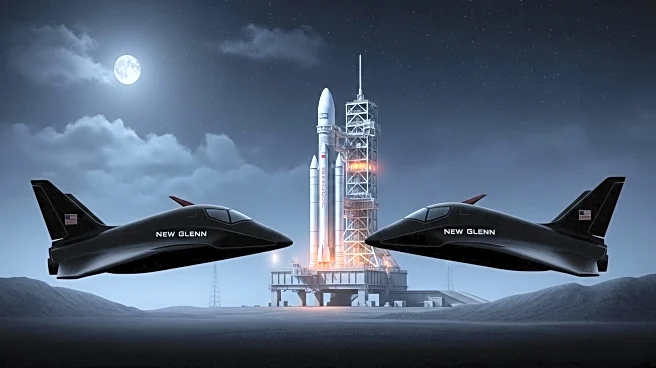What's Happening?
Rocket Lab's twin ESCAPADE spacecraft, named Blue and Gold, have arrived at NASA's Kennedy Space Center in Florida for their upcoming launch on Blue Origin's New Glenn rocket. These spacecraft are part of NASA's SIMPLEx program, designed to study Mars' atmosphere and its interaction with solar wind. The mission aims to provide insights into how Mars' atmosphere is stripped away by space weather effects, using advanced instruments to measure magnetic fields and plasma parameters.
Why It's Important?
The ESCAPADE mission represents a significant step in planetary exploration, offering a cost-effective approach to studying Mars' atmospheric dynamics. Understanding how solar wind affects Mars' atmosphere could provide clues about the planet's climate history and its potential for habitability. The mission also showcases the capabilities of Rocket Lab and Blue Origin in advancing space exploration through innovative technologies.
What's Next?
The spacecraft will undergo inspection and testing before integration with the New Glenn rocket, with the launch scheduled for later this fall. The mission will involve a 22-month cruise phase to Mars, arriving in the second half of 2027. Once in orbit, the University of California's Space Sciences Laboratory will manage the mission, analyzing data to enhance our understanding of Mars' atmospheric processes.
Beyond the Headlines
The ESCAPADE mission highlights the growing trend of utilizing smaller, more agile spacecraft for planetary exploration. This approach could democratize access to space, allowing more institutions to participate in scientific research. Additionally, the mission's focus on Mars' atmosphere could have implications for future human exploration, as understanding atmospheric dynamics is crucial for planning sustainable missions to the Red Planet.









